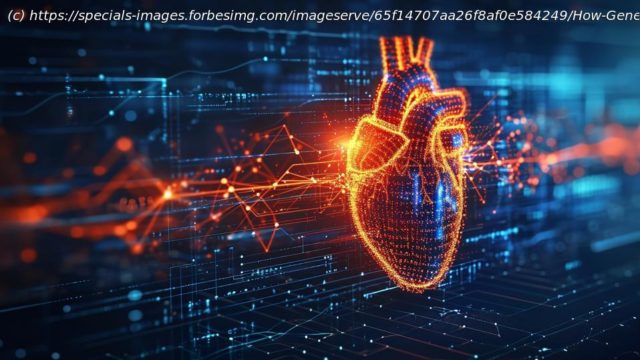Generative AI is set to transform healthcare by aiding in diagnostics, automating administrative tasks, and accelerating drug discovery.
The roles of professionals in society are shifting thanks to the development of truly useful and powerful generative artificial intelligence. Every industry will be impacted, but we have already seen that healthcare, with its heavy use of data and technology, will be disrupted more than most.
Generative AI has the potential to revolutionize the way we treat disease, develop new medicines and personalize treatments to fit individual patients. It will also fundamentally change both the day-to-day working lives of doctors, nurses and other clinical health professionals and even the way they are seen by society. As a result, they will find they are more reliant than ever on the human qualities like compassion, communication and the instinct that many who fill these jobs have for providing care.
So here’s my overview of some of the most dramatic and meaningful transformations we can expect to see in the near future, as well as some of the practical and ethical challenges that will have to be overcome.AI As A Diagnostic Assistant
Generative AI helps with diagnosing conditions by interpreting data and providing clear, in-depth insights into what is known about the patient. It can be used to examine hundreds of x-ray, MRI and CT scans and quickly give a statistical summary of its findings. This will lead to more accurate, data-driven diagnosis of many common or not-so-common conditions.
This communication can then be fine-tuned depending on the role of the healthcare professional who is using it, whether they are a doctor, nurse, consultant, or specialist. Communicating only the insights relevant to them means there will be less noise between the professional and the specific information they need.
The World Economic Forum has also predicted that generative AI will lead to improved outcomes as it becomes able to efficiently extract data from the many disparate and siloed sources that have traditionally existed across healthcare.
It will also increasingly be used to create synthetic data. This is particularly useful for situations where there is limited training data, such as with rare conditions and diseases. It can also reduce the security and data protection workload that healthcare professionals have to take on board when they work with personal data provided by real patients. Synthetic data can also be used to simulate healthcare scenarios like pandemics or the emergence of antibiotic-resistant organisms that could cause a global healthcare crisis.
Start
United States
USA — mix How Generative AI Will Change The Jobs Of Doctors And Healthcare Professionals






